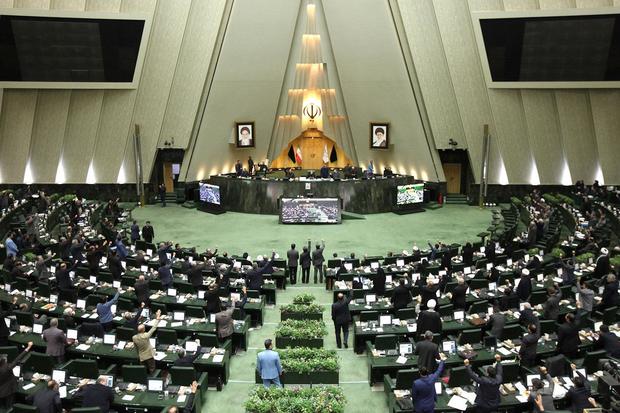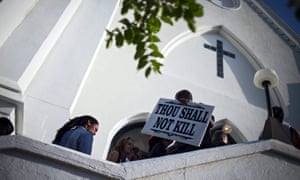https://youtu.be/M8p_5kOMmls
Iran blacklists Pentagon, U.S. forces as 'terrorists'
https://youtu.be/I3sa9IOuw6k
The Soleimani Assassination | Start Here
https://youtu.be/4OM0y6AaxRE
Iran designates all US forces 'terrorists'
https://youtu.be/1-alJoDYRw8
This is what a US-Iran war could look like
https://youtu.be/1p18qdZG3QU
Iran blacklists Pentagon, U.S. forces as 'terrorists'
https://youtu.be/I3sa9IOuw6k
https://youtu.be/4OM0y6AaxRE
Iran designates all US forces 'terrorists'
https://youtu.be/1-alJoDYRw8
This is what a US-Iran war could look like
https://youtu.be/1p18qdZG3QU
Soleimani's burial underway in his hometown of Kerman, Iran 苏莱曼尼遗体在故乡安葬
High alert: Iran strikes back at US with missile attack at bases ...
Iran launches large attack on U.S.-led forces in Iraq, Pentagon says
WASHINGTON (Reuters) - The United States believes there have been potentially multiple attacks on locations in Iraq, including the al Asad airbase that hosts U.S. forces, a U.S. official told Reuters on Tuesday, without providing additional information.
It was unclear what other sites may have been attacked. Tensions have mounted with Iran following a U.S. drone strike on Friday that killed Iranian military commander Qassem Soleimani.
Another U.S. official, speaking on condition of anonymity, had confirmed to Reuters earlier that a rocket attack had taken place against al Asad airbase, but did not confirm other sites.
U.S. President Donald Trump visited the base in his December 2018 trip to Iraq.
The Iranian parliament approved bill on Tuesday that designates United States military forces as terrorists, days after American airstrikes killed top Iranian military leader General Qassem Soleimani in Iraq. The bill is similar to the action the U.S. took last year when the Trump administration designated Iran's Islamic Revolutionary Guard Corps (IRGC) as a foreign terrorist organization.
Members of parliament passed the bill declaring the U.S. military and the Pentagon terrorist entities, according to Iranian state media. Under the bill, the Iranian government will also provide $220 million to the IRGC to "reinforce its defense power in vengeance for General Soleimani's assassination," the news agency reported, as tensions between the U.S. and Iran rise. Iranian parliament voted to designated the U.S. military and the Pentagon terrorist organizations
 This handout picture shows Iranian lawmakers raising their hands to vote during a parliamentary session in Tehran. Iran's parliament passed a bill designating all U.S. forces "terrorists" over the killing of a top Iranian military commander in an airstrike last week. Icana News Agency
This handout picture shows Iranian lawmakers raising their hands to vote during a parliamentary session in Tehran. Iran's parliament passed a bill designating all U.S. forces "terrorists" over the killing of a top Iranian military commander in an airstrike last week. Icana News Agency
A senior U.S. official told CBS News national security correspondent David Martin that Iran's Supreme Leader Ayatollah Ali Khamenei has ordered a direct attack on American interests in retaliation for the airstrike that killed Soleimani, his top military commander and friend. The official said the U.S. military was "extremely concerned" that the retaliation could come quickly.
When asked by CBS News correspondent Elizabeth Palmer on Tuesday when the Iranian response would come, Iran's Foreign Minister Mohammad Javad Zarif would only say that his country would retaliate at the time of its choosing. While a senior Iranian commander threatened at Soleimani's funeral to "set ablaze" America's supporters in the region, Zarif told CBS News the response would be "proportionate" and "against legitimate targets."
Secretary of State Mike Pompeo continued leading the Trump administration's defense of the targeted missile strike that killed Soleimani. He insisted that President Trump was right to order the killing and dismissed Iran's claim that Soleimani was in Iraq for diplomatic purposes.
In April, the U.S. declared the Revolutionary Guard Corps as a foreign terrorist organization, which makes it illegal for anyone to provide material support to the group. The U.S. Defense Department used the Guard's designation to support the strike last week that killed Soleimani, the head of Iran's elite Quds military force and one of the most powerful figures in the Islamic Republic
Read more:
It was unclear what other sites may have been attacked. Tensions have mounted with Iran following a U.S. drone strike on Friday that killed Iranian military commander Qassem Soleimani.
Another U.S. official, speaking on condition of anonymity, had confirmed to Reuters earlier that a rocket attack had taken place against al Asad airbase, but did not confirm other sites.
U.S. President Donald Trump visited the base in his December 2018 trip to Iraq.
Iran's parliament designates all US forces as 'terrorists'
The Iranian parliament approved bill on Tuesday that designates United States military forces as terrorists, days after American airstrikes killed top Iranian military leader General Qassem Soleimani in Iraq. The bill is similar to the action the U.S. took last year when the Trump administration designated Iran's Islamic Revolutionary Guard Corps (IRGC) as a foreign terrorist organization.
Members of parliament passed the bill declaring the U.S. military and the Pentagon terrorist entities, according to Iranian state media. Under the bill, the Iranian government will also provide $220 million to the IRGC to "reinforce its defense power in vengeance for General Soleimani's assassination," the news agency reported, as tensions between the U.S. and Iran rise. Iranian parliament voted to designated the U.S. military and the Pentagon terrorist organizations

A senior U.S. official told CBS News national security correspondent David Martin that Iran's Supreme Leader Ayatollah Ali Khamenei has ordered a direct attack on American interests in retaliation for the airstrike that killed Soleimani, his top military commander and friend. The official said the U.S. military was "extremely concerned" that the retaliation could come quickly.
When asked by CBS News correspondent Elizabeth Palmer on Tuesday when the Iranian response would come, Iran's Foreign Minister Mohammad Javad Zarif would only say that his country would retaliate at the time of its choosing. While a senior Iranian commander threatened at Soleimani's funeral to "set ablaze" America's supporters in the region, Zarif told CBS News the response would be "proportionate" and "against legitimate targets."
Secretary of State Mike Pompeo continued leading the Trump administration's defense of the targeted missile strike that killed Soleimani. He insisted that President Trump was right to order the killing and dismissed Iran's claim that Soleimani was in Iraq for diplomatic purposes.
In April, the U.S. declared the Revolutionary Guard Corps as a foreign terrorist organization, which makes it illegal for anyone to provide material support to the group. The U.S. Defense Department used the Guard's designation to support the strike last week that killed Soleimani, the head of Iran's elite Quds military force and one of the most powerful figures in the Islamic Republic
Read more:
Iran launches missiles at US airbases in Iraq in retaliation for killing of commander
Iran's Islamic Revolution Guard Corps (IRGC) on Wednesday targeted U.S. bases in Iraq including al-Asad and Harir Camp to the north of Erbil with a second wave of surface-to-surface missiles, semi-official Fars news agency reported
- Iranian embassy to China trending on Chinese social media after rockets hit US bases
- US, Iran need to restrain to avoid WWI repeat after rocket attack: ex-envoy
US naïve to think Iran won't fight back
What is happening to Iran is another version of the “America First” policy. But this is a globalized world. How can the US not be affected when the Middle East is in a bad condition? Will it be good for the US if a large-scale Iran war breaks out? If Washington does not want that, why create uncertainty? Is it responsible to take the bet?









 Illustration: Liu Rui/GT
Illustration: Liu Rui/GT


 A formation of the Nanhai Fleet of China's Navy on Saturday finished a three-day patrol of the Nansha islands in the South China Sea.
A formation of the Nanhai Fleet of China's Navy on Saturday finished a three-day patrol of the Nansha islands in the South China Sea.
